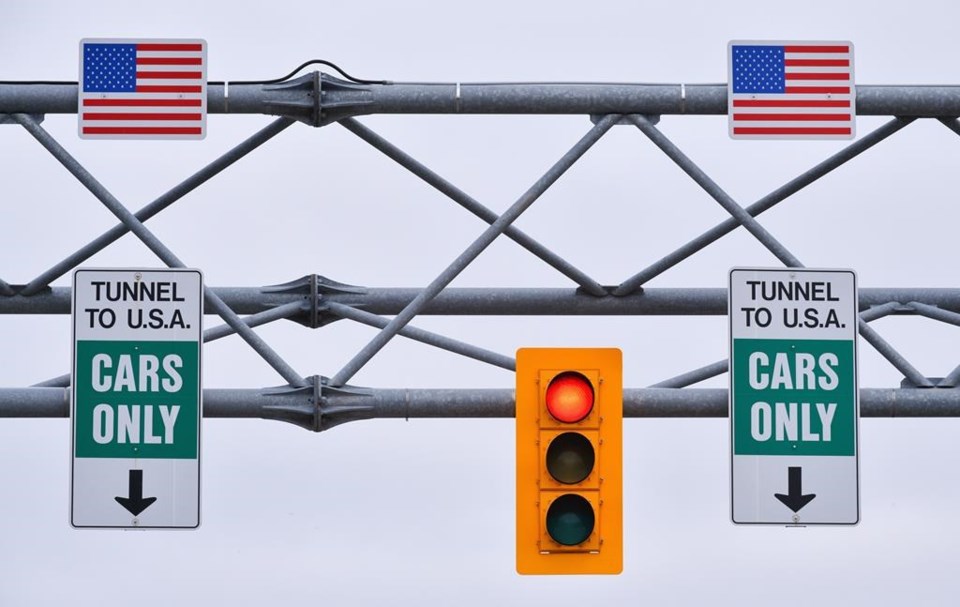Jaslyn DeClercq is counting down the days until next weekend.
With the U.S. land border reopening to fully vaccinated Canadians on Monday, the Tillsonburg, Ont., resident said she’s going to wake up next Friday and drive straight to Ohio with her two-year-old for a reunion with her fiancé.
DeClercq has been in a long-distance relationship with her fiancé for four years and used to see him almost every weekend before the pandemic hit. The closure of the border due to COVID-19 was a huge blow and meant her daughter has only been able to see her father a few times over the last year and a half.
"I’m ready for it to be (next) Friday," DeClercq said in a phone interview. "Going even 30 days without seeing him was a drastic change for us."
The reopening of the border also means DeClercq and her fiancé can finally begin planning their wedding, which they hope to have at a venue in Ohio in 2023, she said.
"We can finally start planning that future, to be married and live in Canada (together)," she said.
Betty Chaborek is also looking to reunite with her loved ones.
The Windsor, Ont., resident used to drive to Michigan to visit her daughter, her son-in-law and their two children almost every weekend before the global health crisis began. She plans to cross the Ambassador Bridge into the U.S. next Friday.
"I am so excited," said the 77-year-old. "I'm hoping to go over there for a couple of days to visit my daughter and her family, especially the grandchildren. I can't wait to hug them and play."
On her to-do-list, Chaborek said, is going out to a restaurant with her family, baking with her grandchildren and some shopping.
One concern Chaborek said she has about making the trip to the U.S., however, is being required to provide a negative polymerase chain reaction COVID-19 test — which ranges from US$75 to US$300 — within 72 hours of departure to return to Canada.
"When you're retired, $200 is a lot of money for a weekend, you know, just to go visit," she said.
Chaborek said she'll still accept the cost to see her family, but it'll probably prevent her from visiting as often as she would've liked.
Mike Osborne, a Welland, Ont., resident eager to see his daughter, son-in-law and grandson in Niagara Falls, N.Y., also said the cost of getting a negative COVID-19 test will deter him from visiting the U.S. as often as he did in pre-pandemic times.
Osborne said he’s fortunate that his daughter has a separate place for him to stay and quarantine at her home if he tests positive for COVID-19 when he visits next week.
"I think a lot of people don't have a backup plan if they test positive, and then they have to find somewhere to go. It can be very costly," he said.
At the end of the day, though, Osborne said he’s willing to pay the price just to be with his loved ones, whom he hasn't seen in seven months.
"I think it's gonna be a surreal time to get together," he said. "There's a little bit of anxiety because I'm not sure what to expect crossing over … but that's OK, it all outweighs for us to visit each other."
Fully vaccinated U.S. citizens and permanent residents have been allowed back into Canada since August, provided they have waited at least 14 days since getting a full course of a Health Canada-approved vaccine and can show proof of a recent negative COVID-19 test.
The U.S. will not be requiring travellers to show proof of a negative test for COVID-19 as part of the new easing of restrictions.
This report by The Canadian Press was first published Nov. 5, 2021.
———
This story was produced with the financial assistance of the Facebook and Canadian Press News Fellowship.
Noushin Ziafati, The Canadian Press

